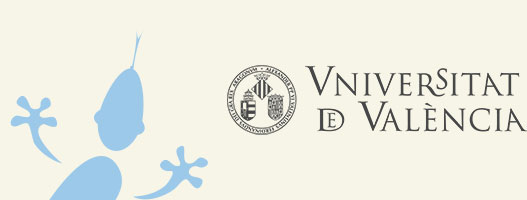Our group is located in the Cavanilles Institute of Biodiversity and Evolutionary Biology of the University of Valencia (Spain). Founded in 2000, the Cavanilles Institute has already become a leading institution in evolutionary biology and ecology in southern Europe. The institute offers a friendly environment with strong research groups in population genetics, evolutionary ecology and ethology, to cite but a few. Valencia is a fantastic city to live in, offering a vibrant and culturally alluring experience, unbeatable weather, beautiful beaches and incredible food (the true home of the paella)! Enquiries to join our lab are more than welcome all year round, just drop us an email ( pau.carazo@uv.es). Specific pre/post-doc posts linked to existing projects will be announced whenever available.
Open positions
Pre-doc position available!
What we offer- We offer a PhD position starting on September 2018 to January 2019.
To do what?- We are looking for a PhD student interested in studying the evolutionary factors modulating the intensity of male-male competition and sexual conflict, and its consequences in terms of population viability. Strong sexual selection can improve population viability and evolvability through a number of processes, such as genic capture. However, strong sexual selection will also often give rise to sexual conflict and female harm, which does not only tend to deviate females from their evolutionary optima, but can drastically affect population viability, leading to a “reproductive tragedy of the commons”. We are still far from understanding what factors modulate the evolution of male-male competition, female harm levels, and sexual conflict at large, and how this all feeds back into population viability. Our on-going research aims to contribute to fill these gaps in knowledge by investigating factors potentially modulating the evolution of sexual conflict. This PhD will explore the role of different ecological and demographic factors (e.g. temperature, population density and structure) affect male-male competition levels and the potential for sexual conflict, mainly in Drosophila melanogaster.
What will it entail?- The research project involves behavioural experiments in the lab, experimental evolution, and considerable fieldwork in Spain, the USA and Australia.
Funding- We offer funding for up to 3 years, but applicants will be expected to apply for independent PhD fellowships (e.g. FPU fellowships from the Spanish Government or PhD fellowships from the host institution).
Where? The student will be supervised by Dr. Pau Carazo, and based at the Behaviour and Evolution group of the Ethology Lab, at the Cavanilles institute of Biodiversity and Evolutionary Biology (University of Valencia, Spain). For information about our group visit our website (http://paucarazo.com).
Contact For further information and expressions of interest, please contact Pau Carazo (University of Valencia; pau.carazo@uv.es). The deadline for applications is the 10thSeptember.
General Post doc opportunities
The are two national fellowships schemes available (depending on whether candidates have previous post-doctoral experience or not) and the Marie Sklodowska Curie actions, which offer substantial funding.
General Pre doc opportunities
Students interested in conducting a PhD in our lab may apply for two different pre-doc fellowships: the national FPU fellowship scheme and the University of Valencia’s own PhD fellowship scheme “Atracció de talent”.
Masters & undergraduates
We welcome both master’s students and undergraduate student interested in conducting their research project at our lab. There are no fellowships available for MSc students at the moment, but there is a national scheme for undergraduate scholarships and the Association for the Study of Animal Behaviour also offers several undergraduate project scholarships each year to European students.

